
OUR LADY OF VLADIMIR (DETAIL)
XITH-XIITH CENTURY
CATHEDRAL OF THE ASSUMPTION, MOSCOW

The following selections have been translated for inclusion in this anthology by Helen Iswolsky: St. Theodosius, St. Sergius, St. Nilus Sorsky, The Life of Archpriest Avvakum by Himself, St. Tychon, St. Seraphim, Father Yelchaninov.
The translation of The Way of a Pilgrim has been done by Nina A. Toumanova.
We wish to thank Cassell & Co., Ltd., London, for their kindness in permitting us to include My Life in Christ, by John Sergieff: from My Life in Christ translated by E. E. Goulaeff.
Bibliographical Note
This Dover edition, first published in 2003, is an unabridged reprint of A Treasury of Russian Spirituality, published by Harper Torchbooks, New York, 1965. The original edition was first published in 1950 by Sheed and Ward, London. As in the Harper edition, the main text begins on page 11; however, nothing has been left out.
Library of Congress Cataloging-in-Publication Data
Treasury of Russian spirituality.
The way of a pilgrim and other classics of Russian spirituality / edited by G. P. Fedotov. p. cm.
Originally published: A treasury of Russian spirituality. New York : Harper Torchbooks, 1965.
Includes bibliographical references.
9780486147192
1. MysticismRussia. 2. Mysticism-Russkai pravoslavna erkov I. Fedotov, G. P. (Georgii Petrovich), 1886-1951. II. Title.
erkov I. Fedotov, G. P. (Georgii Petrovich), 1886-1951. II. Title.
BV5077.R8F4 2003
248.0947dc21
2002041769
Manufactured in the United States of America
Dover Publications, Inc., 31 East 2nd Street, Mineola, N.Y. 11501
Table of Contents
PREFACE
T HE TERM SPIRITUALITY IS USED IN VARIOUS SENSES. IN THE BROADEST, IT DEFINES THE LOFTIEST MORAL AND INTELLECTUAL qualities of man in his relation to God and to nature, to himself and to his fellow-men. In social or cultural life, spirituality in this sense finds expression in the philosophy, art, and ethic of a nation or of a civilization. Wordsworth or Keats, for example, is highly representative of English spirituality as it is expressed in the Romantic Movement of the nineteenth century.
In its stricter, or narrower, connotation, spirituality is applied to the religious life in its innermost and deepest strata, the life with God and all spiritual experiences arising from this source. Prayer is the center, the core, of spiritualityand this is true not of mystical prayer alone. As a matter of fact, mysticism as the experience of union with God (a feature of many religions besides Christianity) is a rare phenomenon in religious life. It is true, of course, that the spiritual energies generated by this prayer of union do not remain sealed in the cell of the contemplative saint but diffuse themselves, sometimes fructifying very remote areas in the civilized world of his age. The spiritual influences exerted by St. Francis and St. Teresa are historical examples of this, and in our own day a non-Christian, Eastern mysticism, emanating from India, is seeping into an English literature lately emancipated from the Puritan tradition, with results not wholly salutary. Nevertheless the most. powerful influence upon a people is exercised, not by the mystical, but by the common kind of prayer, by the attitude of the ordinary man towards God, in his prayer and in his moral life. Here also the saints, the heroically spiritual, are leaders; but chiefly such of them as stand on common ground with the men of their time; who can share more or less freely their spiritual experience with their fellow-men.
Spirituality, even in the specific religious sense, is not confined to prayer but embraces the whole world-outlook of the individual, particularly the ethical code which his religious experience inspires. In the art of the best epochs of civilization, religious spirituality is reflected; its rays, although gradually weakened, penetrate into the densest strata of social life, into political movements, popular customs, the wisdom of the common man, folk-lore. But, of course, in these exterior strata spirituality encounters the ponderous resistance of material forces and very often is distorted by them. Indeed there has never been a Christian civilization in the full meaning of the wordthat is, not as an endeavor, but as a realization. It is different in the case of a natural, or pagan, religion. The outgrowth of physical environment and tribal custom, it reflects, in its very deficiencies, the impact of natural and social forces; and in that it is fully conformed to its environment, it exerts the more powerful influence. A pagan civilization always presents a more harmonious unity than does a Christian civilization. Christian society is ever the arena of a struggle for domination between Christian and pagan, or secular, forces. Yet this struggle has not as its end the annihilation of the natural forces opposed to Christian principles, for grace does not destroy nature, but transforms it. The Christian Church, coming to a newly converted people, does not efface the character of this people as a collective personality, but, after a period of sharp conflict with the forces of paganism, accepts all those elements which are reconcilable with Christian dogma and ethic. With baptism, or the influx of grace, a new national personality comes into being, different from all others and reflecting in all its Christian manifestations the pre-Christian culture. And of course, side by side with the national inheritance, purified and transformed by Christianity, live many survivals of rude paganism which, although endangering ethical practice, are yet capable of a mighty creative unfolding in the culture of a nation, particularly in her art. Thus, in both its Christian (conquering) and pagan (yielding) elements, the spiritual life of a nation is a clue to the understanding of her culture.
Russia imposed herself upon the attention of the West but recently through her literature, music, and artfinally through the tremendous social upheaval of the Communist Revolution. A widespread curiosity with regard to the spiritual background of this newly disclosed world has been awakened but scarcely satisfied. Russia remains a great enigma to the West. There is, for instance, no obvious link between her classical literature of the nineteenth century and the spirit of her Revolution.
Now it is plain that neither the modern literature of Russia nor her political and social tragedy can be understood without a clear vision of her past. Russia had been a medieval civilization until the time of Peter the Great (about 1700), knowing no Renaissance nor any cleavage between religious and secular culture. And until their emancipation from serfdom (1861), the Russian peoplein contrast to the gentry and the intelligentsiawere medieval in their religion and in their world-outlook. Without too violent a pressure on facts, one can venture the statement that the people leaped directly out of the Middle Ages into the atheistic society of Communism. As for the intelligentsia, although living mainly by Western ideas and ideals, they had never completely lost contact with the peasantry; particularly in the nineteenth century the people were studied and idealized, as a basic stratum of Russian culture and a source of Russias moral strength. All the great classical writers (especially Dostoevsky and Tolstoy) paid a generous tribute to populism and were dependent upon popular beliefs and traditions for their own religious and moral attitudes.
Next page
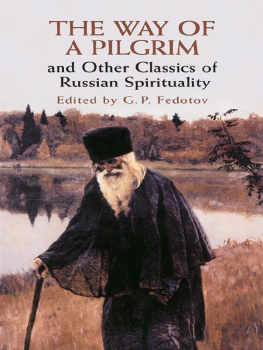

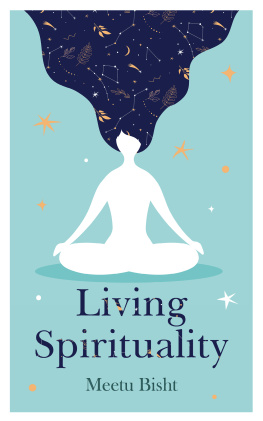
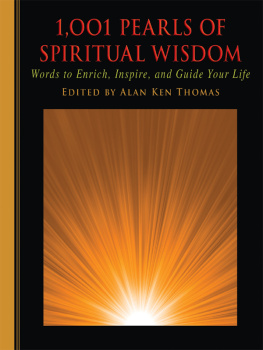
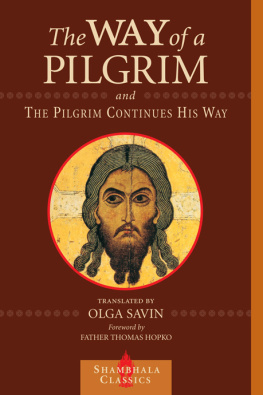
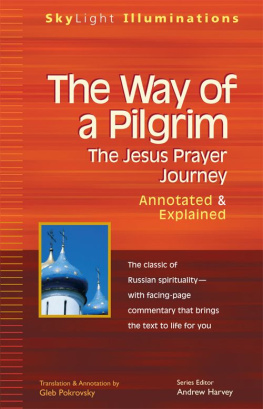
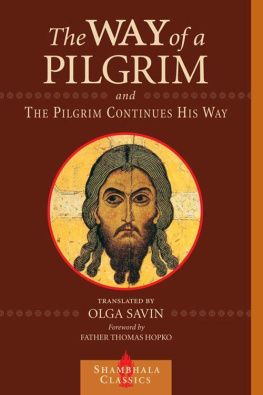
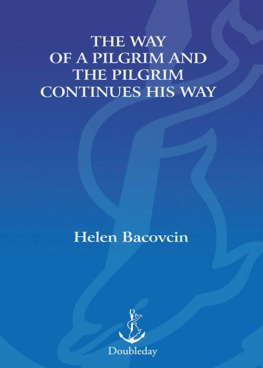
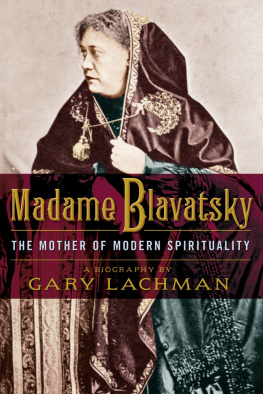



 erkov I. Fedotov, G. P. (Georgii Petrovich), 1886-1951. II. Title.
erkov I. Fedotov, G. P. (Georgii Petrovich), 1886-1951. II. Title.